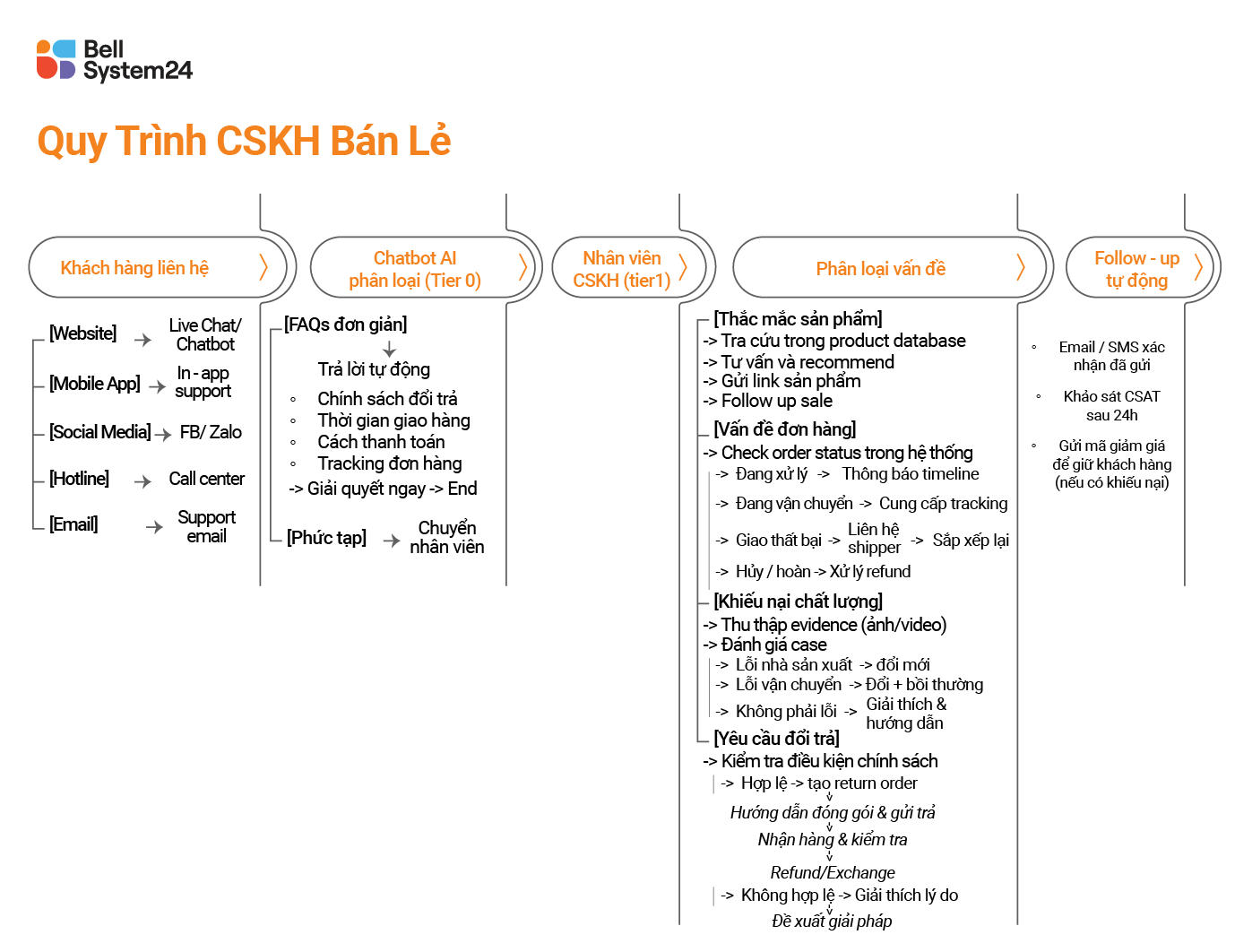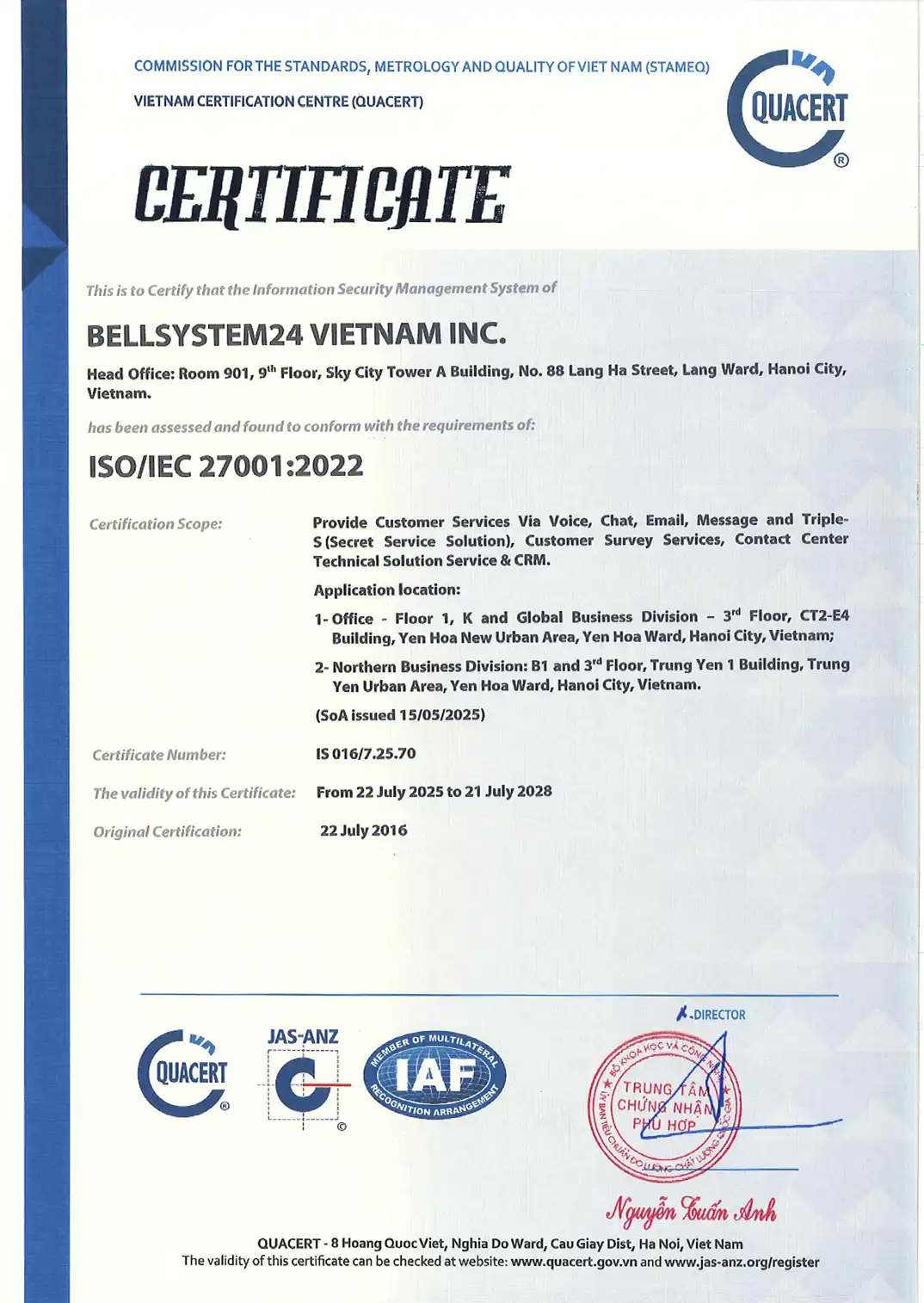Business has always been considered a field of “serving hundreds of families”. Businesses always have to deal with many types of customers. Therefore, dealing with difficult customers is inevitable.
It can be said that difficult customers are a big nightmare for every business, especially customer service. However, looking at the positive side, difficult customers create opportunities for customer service to be perfected, to improve capacity, and at the same time gain more experience in communicating with difficult customers.
Nhận diện khách hàng khó tính
Identifying difficult customers is an activity in which businesses must build a customer plan, describe their habits and needs to find the most effective way to solve problems. To identify customers, you need to use factors such as personality, purchasing needs, problem-solving attitude, etc. From there, you can create a list of difficult customers.
The ability to identify customers is of certain importance to the development of a business. The role of customers in the revenue of a business is undeniable. In the new era, a business unit is considered wise if the business knows its position, knows what it needs, what it wants. It is not that the business only focuses on finding new customers or serving all customer segments.
Identifying and recognising difficult customers and providing them with appropriate solutions will help businesses improve service quality, resolve problems quickly and uncover areas where the business needs improvement.
See also: How to convince difficult customers with the art of "winning hearts and minds"
Dưới đây là 6 nhóm khách hàng khó tính và kỹ năng chăm sóc khách hàng này

Dealing with 6 groups of difficult customers
Grumpy, hot-tempered customer
Angry customers are prone to insults and criticism. They want immediate service. They believe their needs and demands should take precedence over others. They speak up and complain to get what they want. Whether you are right or wrong, an angry customer will not be interested in explanations. Their anger makes it almost impossible for them to listen to any voice other than their own.
So the best way to deal with this type of angry customer is to stay calm and apologize for the problem (even if they are wrong). If they calm down and tell you how to help, show that you are willing to fix the problem. Respond politely without raising your voice or criticizing. It is your responsibility to stay calm and composed when the customer is upset.
If your attempts to explain and care ultimately fail, you can always contact them again at a later time (when they are calmer). With proper care, they can become your loyal customers.
Customers often complain
Complaints from customers are considered positive feedback because this will help businesses recognize problems or errors in business so that they can overcome and improve. However, there will be unnecessary complaints from difficult customers. Because these customers often tend to complain about small things, they are not satisfied with any service.
For this type of customer, you need to be careful and focused because their complaints can make you tired and annoyed.
First, you have to accept the fact that you can’t please all your customers, even the ones who complain. Accepting this fact will help you avoid trying to please them all the time. Let them know you’re listening. Whatever they say, respond calmly with a friendly smile.
If you feel you can resolve the customer complaint then do it immediately and if it is resolved thoroughly you will not have to listen to them complaining or complaining over and over again about the same problem.
Xem thêm chi tiết: 8 bước giải quyết khách hàng khiếu nại
Customers are hesitant and indecisive.
This type of hesitant customer, no matter if you provide enough or more information than needed, will still not make a decision to buy your service or product. Because hesitant customers will often wait for incentives, but the service or product must be of real quality for them to agree to invest. Hesitant customers often have the fear of spending money on a product that is not satisfactory, that is why they always need more information about the product than anyone else.
This type of customer tends to drain your energy and time without making a purchase decision. This type of customer will also reduce your productivity and performance as well as your business.
Identify what is important to this demanding customer base. What do they care about most? Price, quality, or product features? Once you know what is important to them, it will be easier to sell your products and services to them.
Another way to get hesitant customers to make a decision is to offer them a discount or a money-back guarantee. Either way, you need to set boundaries with this type of customer. Otherwise, this customer will drain all of your time and energy, leaving you exhausted and without sales.
Customers consider themselves "god"
This type of customer is highly individualistic and does not care what your business's policies are for customers.
For example: Your business will not work or respond to any information on weekends, but your "god" customers will ignore that rule and force you to solve the problem for them on Saturday morning. They will think you are unprofessional and threaten you to complain or leave the business to buy products from another company.
For this type of client, it's best to clearly explain your boundaries.
As in the example above, you can announce on your business’s official website or via email that “our customer service will be available from 8am to 6pm, Monday to Friday. If there is any problem on the weekend, unless it is an emergency, we will resolve it the following Monday morning.
Often the “godly” type of customer will ignore the rules and will ask you to solve their problem. If the problem is really urgent, then follow the plan, if the problem is not really serious, then solve it according to the rules. Otherwise, this type of “godly” customer will ask you to solve all other problems even if they are not urgent.
Know-it-all customers
This type of know-it-all customer is considered a customer file that knows everything including the business, its products, and services. They are the ones who dominate the conversation and will often assume that all the information they give is correct and will not listen to you.
For “know-it-all” customers, compliment their knowledge of the product or service and give them extra attention if possible. Make sure your compliments are sincere and not just meant to please or flatter.
Note that you should never challenge or contradict their opinion because you will have an endless argument. Instead, if they misunderstand and you need to provide information, start tactfully with “You are right but I think…” and state your point.
Chỉ cần khách hàng khó tính “biết tuốt” đó cảm thấy họ được bạn chú ý và rời đi với cái tôi còn nguyên vẹn, họ sẽ có nhiều khả năng trở thành khách hàng trung thành của bạn hơn.
See also: Sơ đồ quy trình chăm sóc khách hàng chi tiết, hiệu quả
“Unreasonable” customers
Many people fall into the category of customers who make unreasonable requests. They often put customer service staff in a “difficult” position of not being able to respond, wanting to respond but not knowing how to respond satisfactorily or to satisfy the customer.
When a problem arises, this customer always asks to see the manager or director, which makes you feel like you did something wrong and don’t know anything about the product. They often ask: “If you can’t do what I want for me, let your boss do it for me.
They tend to be extremely demanding and difficult people. To address these issues, listen to exactly what is bothering this difficult customer so much that they want to immediately meet with a manager or director to discuss: the attitude of the staff or the quality and price of the product.
After that, the customer service department needs to clarify where the problem really comes from, whether it is due to the staff or a misunderstanding from the customer, etc. Stay calm and calm the customer's anger. If the problem is only related to attitude and quality that the staff can solve themselves, apologize and try to explain to the customer with the most sincere attitude. If the staff cannot solve the problem according to regulations, call the manager directly to solve it.
Trong kinh doanh, bạn sẽ gặp “đủ loại” khách hàng. Vì vậy, bạn cần phải có kế hoạch hoặc xác định các loại khách hàng để có cách giao tiếp phù hợp nhất với từng người nhằm duy trì mối quan hệ tốt với họ. Bellsystem24 Việt Nam chia sẻ thông tin về cách giao tiếp hiệu quả với những khách hàng khó tính. Hy vọng bài viết này sẽ giúp doanh nghiệp của bạn xác định và đề xuất những cách tiếp cận phù hợp với những tình huống khó khăn hoặc những khách hàng khó tính.
Xem thêm: Dịch vụ CHĂM SÓC KHÁCH HÀNG CHUYÊN NGHIỆP







